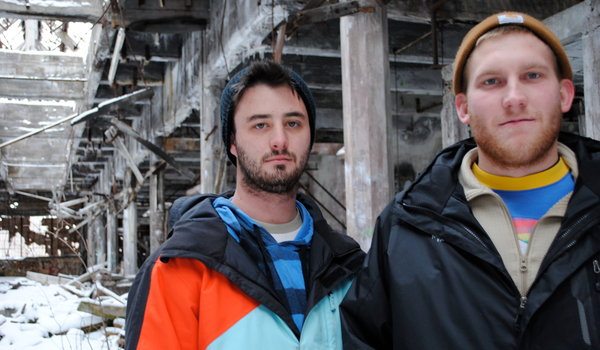|
Reviews of Recent Independent, Foreign, & Documentary Films in Theaters and DVD/Home Video

WHERE SOLDIERS COME FROM Heather Courtney’s documentary Where Soldiers Come From grew out of a wish to tell a real story about the town she grew up in and to rehabilitate the Middle American, small-town stereotype—a hokey, hickish caricature of Red State racism and Tea Party ignorance. The town in question, Hancock, sits in the northernmost section of Michigan’s Upper Peninsula, and with over one-fifth of the city’s residents earning incomes below the poverty line, it is a perfect exemplar of the current recession/depression. With minimal prospects for employment and few pathways out, Hancock is the perfect breeding ground for army grunts. Soldiers follows three teenagers—Dominic Fredianelli, Cole Smith, and Matt “Bodi” Beaudoin—who join the National Guard after high school for the signing bonus and the benefits of the GI Bill. Courtney observes them for a few years, getting to intimately know them and their families, and she continues to follow them as they are deployed to Afghanistan in 2008 as part of an IED (improvised explosive device) disposal unit. The film tracks their changes from lively teens to veterans afflicted with traumatic brain injury and posttraumatic stress disorder, trying to re-acclimate to civilian life. This description makes Fredianelli, Smith, and Beaudoin’s transformation sound more dramatic than it really is. Courtney doesn’t have a heavy hand and watching them change is subtle but marked. It’s easy to see why the film won an award for editing at this year’s South by Southwest. With such well-placed edits and an effortless narrative flow, the transformation progresses smoothly, minute change by minute change. The differences are almost imperceptible, but at the same time very apparent, and the three are very obviously different at the end but not in a deranged or over-the-top way. Courtney also has an eye for elegantly composed shots. Where many documentaries forget about the art of filmmaking in the rush to make a point, Soldiers is instead full of graceful framing and well-juxtaposed shots that help explore what the subjects say with more poetic depth. A sparse soundtrack that leans towards instrumental post-rock—much in the same vein as TV’s Friday Night Lights—creates a wistful, contemplative atmosphere that vibrates between warmth and melancholy, seemingly the soundtrack to good small-town narratives forevermore. The fact that Soldiers is composed artfully is also part of Courtney’s narrative aims. She has noted that she was not looking to score easy political points, but rather wanted to look at the emotional and human impacts of the war. This is, of course, an impossible task, as the political is intimately intertwined in the emotional dimensions of our lives, but with Courtney’s focus first on the human elements, the political meaning is left for the audience to piece together. Foregoing the didactic route is smart, and it’s obvious from the film that, much like a great deal of the United States, Hancock has been decimated by unemployment and poor job prospects. The film brilliantly portrays the human cost of decades of neoliberal policies, which have enriched the wealthiest to an obscene degree while draining the poorest and less fortunate of opportunities. It also shows how, while perhaps not deliberate, as in a conspiratorial way, the manufacturing corporations that have destroyed the working class through offshoring have created the foundation for the military/industrial complex to exploit.
Perhaps the most saddening fact is that the soldiers are aware of this. In rehabilitating a stereotype, Courtney shows that the poor and ignored aren’t oblivious simpletons, but are smart and sharp and simply desperate for a better life. Bodi is the most cynical of the three, yet all note how their signing-up is less about love of country or feeling of purpose than it is about trying to earn money for college and to create a future that isn’t mired in despondency. Courtney leaves us with no dire warnings and no Important Moral. People are slightly better off or slightly worse off, and they continue to live their lives.
Andrew Beckerman
|

